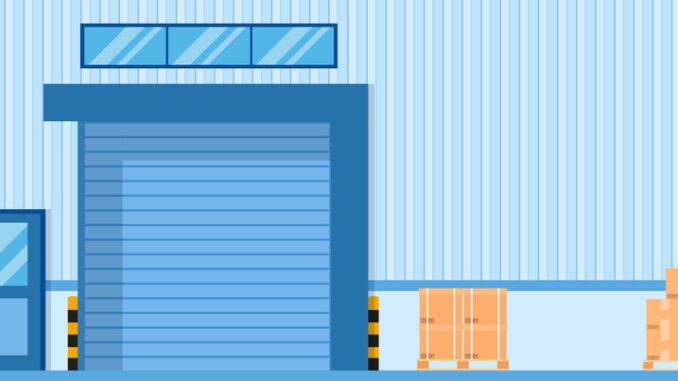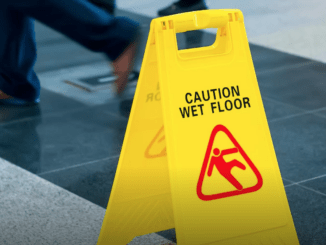
As many dealers look to diversify their product ranges and client bases some are turning to the warehouse and industrial space for opportunities
With the market for traditional office products continuing to decline – not helped by the pandemic – many dealers are looking at diversifying their product mix and breaking into new markets to gain additional revenue.
One sector that provides a great opportunity for dealers is the industrial supplies market, as Steve Plaistowe, business development manager, office products channel, at Spectrum Industrial, explains. “Safety signs and posters and similar products are a great opportunity for resellers to delve further into,” he says. “If the reseller has already been selling catering/janitorial/workwear/PPE to a consumer business, then it’s highly likely they’ve already built a relationship with the same person who is responsible for sourcing safety signs for the site.
“Sales of safety products are driven by the need for employee protection and compliance with Health and Safety Executive (HSE) regulations. With more than 140 workers killed while at work during FYE21 (source: HSE Workplace fatal injuries in Great Britain, 2021 report), and the staggering economic cost to businesses of injuries and fatalities, there’s a clear need for safety signs to mitigate risks in all areas of commercial premises – and especially within factories, distribution, transportation, waste management and operational sites.
“Safety signs, posters, etc., are key requirements for all businesses and, while not technically challenging, there’s a requirement for a broad range to be offered to the consumer given the myriad of different circumstances relevant to each operational site – and then, the ability to offer custom/bespoke signage, to meet specific requirements not met by off-the-shelf products, is a pre-requisite to success in the safety market.”
Staying with safety, dealers can also sell first aid kits and related products, as Ben Corrigan, national sales manager at Safety First Aid Group, explains. “The industrial workplace is, of course, a higher risk environment than offices; it requires a higher number of kits per employee and the usage of the products is higher,” he says. “The industrial sector also has demand for a larger range of products than offices.”
Ben adds that specialist knowledge is not required for dealers to sell first aid products. “End users understand what their own requirements are and the British Standard can be used to guide people as to the number and size of kits they require per employee. In addition, larger sites will have had to risk assess their operation and will know what first aid equipment they’re looking for,” he says.
“What industrial users need is to source this requirement from a single supplier. This includes the standard consumables, such as bandages and plasters, but often extends to higher priced items such as stretchers, defibrillators and trauma products. In a market where many products are commodities, having items in your range that are unique, or add value, is important. A proportion of the market is always prepared to spend more on premium branded products, while others might value wall mounted, highly visible solutions that have the added benefit of literally displaying commitment to their employees’ health and safety.”
Board meeting
Meanwhile, as Yvonne Partridge, business development director at Bi-Silque, notes, there is also demand for equipment such as heavy-duty whiteboards, cork and lockable boards. “Strong and durable, these boards are made from high-quality materials,” she says. “Whiteboards and cork boards are ideal for displaying instructions, safety notices and data. Lockable boards can also protect the content against manipulation.
“Freestanding structures can be used to adjust open workspaces to existing needs. Industrial workstations are versatile and sturdy solutions, where shop floor workers can properly perform their tasks. They make it easier to organise, access and utilise all the items necessary for the job at hand. “Visual tools boost productivity by giving employees the information they need, where and when they need it.”
Packing solution
Meanwhile, the pandemic has made businesses consider products they hadn’t thought about much in the past – such as shredders that turn waste cardboard into quilted packaging material. “The market for cardboard shredders has gone crazy due to online shopping,” says Mark Harper, head of sales UK&I, office technology, at HSM (UK) Ltd. “For example, if perfumes come in boxes of 48, and each of those comes in a box of eight, then you end up with a lot of boxes and waste cardboard; if you put that in a skip you must pay for that skip – if you have a large quantity you can use a cardboard bailer, and maybe sell it. However, for those who don’t have enough to bail, and can’t afford a £10,000 bailer, you can buy a machine that will turn it into an alternative to bubble wrap, enabling you to reuse the cardboard you would normally have to pay to get rid of.”
Mark adds that for dealers looking to break into this market, it is all about understanding the products, talking to customers and asking the right questions. “For example, you ask your customers who have warehouses, ‘How much do you spend on bubble wrap? How much do you spend on cardboard disposal? How much cardboard do you produce?’ Then you can talk about the products you have and their many benefits.”
For products such as shredders – which can be a significant investment – trial periods can be an important way to secure a sale. “Through our dealers we put machines out on a week’s trial – if we know people are serious – and nine-out-of-10 don’t come back as the company makes the purchase.
“Any kind of warehouse or industrial unit should be a target for dealers, whether they are big or small.”


Be the first to comment